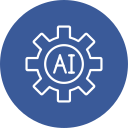Collaboration Without Friction
Think living rooms for work and home where tasks, files, and messages live together. AI cleans duplicate items, resolves conflicting due dates, and flags blockers. Everyone sees the same evolving plan, so fewer meetings are needed to simply synchronize and wait.
Collaboration Without Friction
Your assistant chats with a teammate’s assistant to find overlapping availability, reserve rooms, and map dependencies. Instead of long email threads, agents negotiate options while you focus on substance. You review outcomes, not micro-choices, with the final word always yours.






